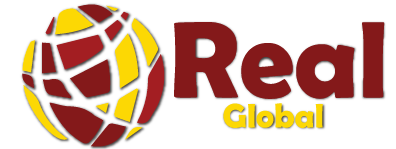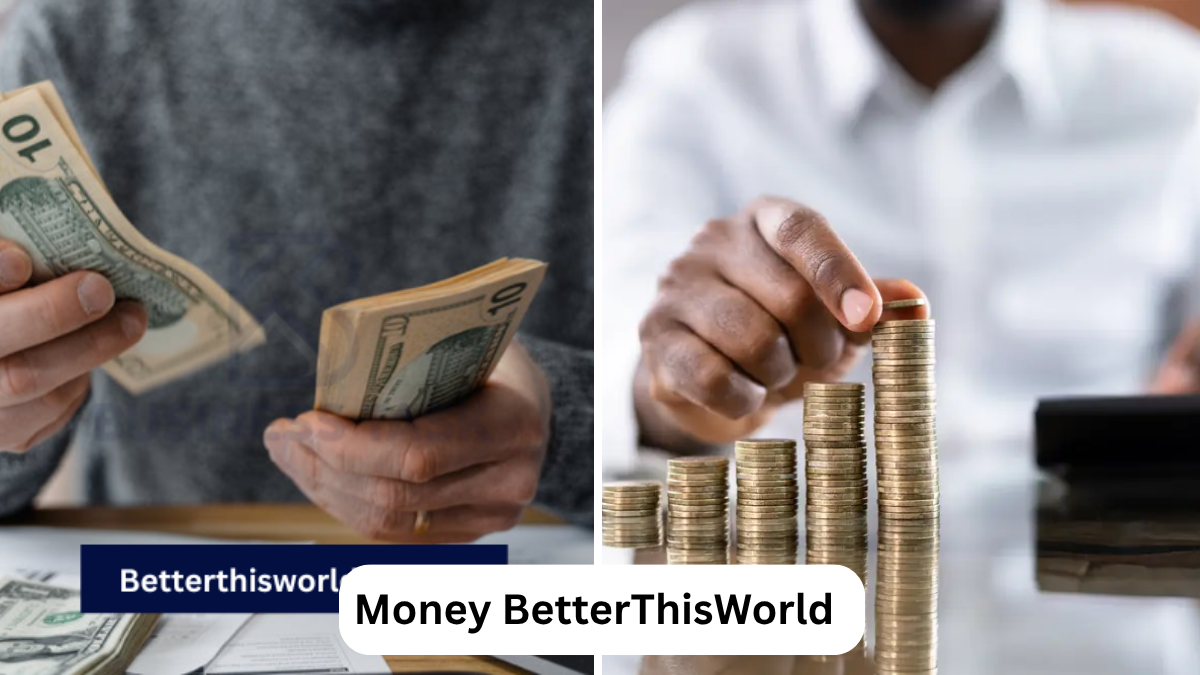The Concept Behind Money BetterThisWorld
The phrase “Money BetterThisWorld” represents more than just the pursuit of financial success. It captures a growing philosophy in today’s global society—one that views money not only as a personal tool for comfort and freedom but also as a force for positive transformation. In an era defined by rapid technological change, digital currencies, and rising social awareness, the way people think about money is evolving. Money BetterThisWorld signifies the idea that financial empowerment should lead to social progress, ethical growth, and collective prosperity.
Traditionally, money has been viewed simply as a means to acquire goods, achieve status, or secure comfort. However, the modern economic mindset is shifting toward values of sustainability, transparency, and inclusivity. Money BetterThisWorld urges individuals and institutions to reconsider how wealth is earned, managed, and shared to ensure it contributes to a more equitable and balanced world.
The Changing Definition of Wealth
In the past, wealth was measured primarily by tangible assets—land, gold, or property. But today, the meaning of wealth has expanded to include intangible qualities like knowledge, influence, and digital presence. Money BetterThisWorld challenges the old notion that accumulating wealth is the ultimate goal. Instead, it suggests that how money is used is equally important.
In the age of conscious capitalism, people are increasingly drawn to investments and businesses that align with their values. Ethical brands, renewable energy projects, and social enterprises are growing because they embody the principle that profit and purpose can coexist. This shift in consciousness proves that financial growth and moral integrity are not mutually exclusive but rather complementary aspects of a new economic order.
The Psychology of Money in Modern Society
Money BetterThisWorld also delves into the psychology of money—how individuals relate to wealth and what emotional or cultural meaning they attach to it. Many people grow up with conflicting beliefs about money. Some see it as a symbol of power and freedom, while others associate it with greed or corruption. The mindset a person holds about money profoundly affects their ability to create and manage it.
Financial literacy is central to this transformation. Understanding saving, investing, and budgeting is no longer just a skill—it’s a form of empowerment. Money BetterThisWorld emphasizes that when individuals become financially aware, they gain control over their future. This self-awareness reduces anxiety, encourages responsibility, and enables people to make conscious financial decisions that align with their life goals.
Money and Technology: A New Frontier
Technology has dramatically reshaped how people interact with money. Digital wallets, online banking, and cryptocurrencies have decentralized traditional finance and given individuals more control over their assets. The emergence of blockchain technology and decentralized finance (DeFi) reflects the Money BetterThisWorld vision of financial systems that are open, transparent, and globally accessible.
These innovations allow individuals from any part of the world to participate in global trade and investment without the need for traditional intermediaries. However, this freedom also brings responsibility. As digital finance grows, so does the need for cybersecurity, data protection, and ethical regulation. Money BetterThisWorld advocates for the responsible use of financial technology to ensure that progress benefits everyone, not just a privileged few.
The Role of Education in Building Financial Awareness
Education remains one of the most powerful tools for realizing the principles of Money BetterThisWorld. Schools and universities around the world are increasingly recognizing the importance of teaching financial literacy. Yet, education should go beyond numbers and profit—it should foster a deeper understanding of economics, ethics, and global interdependence.
When young people learn how money works in the real world—how economies grow, how inflation affects purchasing power, and how investment can create value—they are better prepared to make wise choices. Money BetterThisWorld envisions a future where education nurtures responsible citizens who understand that financial success carries a moral obligation to contribute positively to society.
Money and Morality: Finding Balance
Money BetterThisWorld also explores the moral dimension of wealth. Money itself is neutral—it’s the intent and action behind its use that determine its impact. In today’s world, where inequality and environmental concerns are at the forefront, moral finance is becoming a defining principle. People are beginning to question not just how much they earn but how that money was made and what it supports.
This growing consciousness is visible in movements like ethical investing, green finance, and corporate social responsibility. These trends reflect a shift toward viewing money as a tool for justice and sustainability. The idea is that when individuals and corporations prioritize ethical practices, the world as a whole benefits. Thus, Money BetterThisWorld serves as a reminder that financial gain should never come at the cost of humanity or the planet.
The Global Economy and Shared Prosperity
In a globalized world, economies are more interconnected than ever. Events in one region can ripple across continents, influencing markets, jobs, and resources. Money BetterThisWorld underscores the importance of shared prosperity, where wealth distribution supports stability and cooperation rather than competition and exploitation.
Developing nations, for instance, can thrive through equitable trade and fair access to capital. International partnerships, microfinance initiatives, and community investment programs demonstrate how global collaboration can reduce poverty and foster inclusive growth. The Money BetterThisWorld philosophy encourages policies and practices that close the economic gap between the rich and poor, creating a more balanced and resilient global system.
Sustainability and the Future of Finance
Sustainability has become a cornerstone of the modern financial world. As climate change and resource scarcity continue to challenge economies, sustainable finance has emerged as a vital strategy. Money BetterThisWorld recognizes that long-term wealth cannot exist without environmental and social balance.
Investors and governments are increasingly adopting frameworks that prioritize green energy, waste reduction, and carbon neutrality. Sustainable finance is not only about doing good—it’s also about ensuring stability and resilience for future generations. Money BetterThisWorld supports the idea that economic progress and environmental preservation can coexist when guided by thoughtful policies and innovative technology.
Money as a Tool for Empowerment
Money BetterThisWorld also focuses on empowerment—how access to financial resources can transform lives. For marginalized communities, financial inclusion is often the key to independence and progress. Microloans, small business grants, and digital payment systems have opened new opportunities for entrepreneurs worldwide.
When people have access to financial tools, they gain the power to shape their destinies. This empowerment fosters innovation, reduces inequality, and strengthens communities. Money BetterThisWorld promotes the idea that everyone, regardless of background or location, deserves the chance to build financial security and contribute meaningfully to the global economy.
The Emotional Connection to Financial Success
Money is deeply tied to human emotion. It affects self-worth, relationships, and even happiness. Many people chase wealth as a symbol of success, only to realize that fulfillment comes not from the amount of money earned but from the sense of purpose behind it. Money BetterThisWorld invites individuals to cultivate a healthy relationship with money—one based on gratitude, balance, and mindful use.
A person who understands the real value of money uses it as a means of creating positive change, not as an end in itself. Financial well-being, therefore, becomes a part of overall mental and emotional health.
The Vision of Money BetterThisWorld
At its core, Money BetterThisWorld is about redefining the purpose of wealth in modern society. It’s a call to action for individuals, organizations, and nations to use financial power responsibly. The goal is not merely to accumulate riches but to direct them toward innovation, equality, and global betterment.
In this vision, every financial decision—whether personal, corporate, or governmental—contributes to shaping a fairer and more sustainable world. Money becomes not just a currency of exchange but a currency of compassion, collaboration, and collective progress.
Conclusion
Money BetterThisWorld symbolizes a new economic consciousness—one that blends financial intelligence with ethical responsibility. It challenges people to think beyond profit and consider the lasting effects of their financial choices on society and the planet. True wealth, according to this philosophy, lies not only in material abundance but also in the positive impact one leaves behind.
As technology continues to evolve and global challenges intensify, embracing the principles of Money BetterThisWorld can guide humanity toward a more just, innovative, and compassionate financial future.
FAQs
What does Money BetterThisWorld mean?
Money BetterThisWorld represents a philosophy that encourages the responsible and ethical use of money to create social progress, sustainability, and shared prosperity.
How does Money BetterThisWorld relate to financial literacy?
It emphasizes the importance of understanding money management as a form of empowerment that helps individuals make conscious and responsible financial decisions.
Why is sustainability important in Money BetterThisWorld?
Sustainability ensures that economic progress does not harm the environment or future generations, aligning with the belief that true wealth must be balanced with responsibility.
Can technology support the goals of Money BetterThisWorld?
Yes, financial technologies like blockchain and digital banking can promote transparency, inclusion, and accessibility—key pillars of the Money BetterThisWorld vision.
How can individuals practice the principles of Money BetterThisWorld?
By adopting mindful spending habits, supporting ethical businesses, investing responsibly, and using money as a means to improve both personal and collective well-being.




